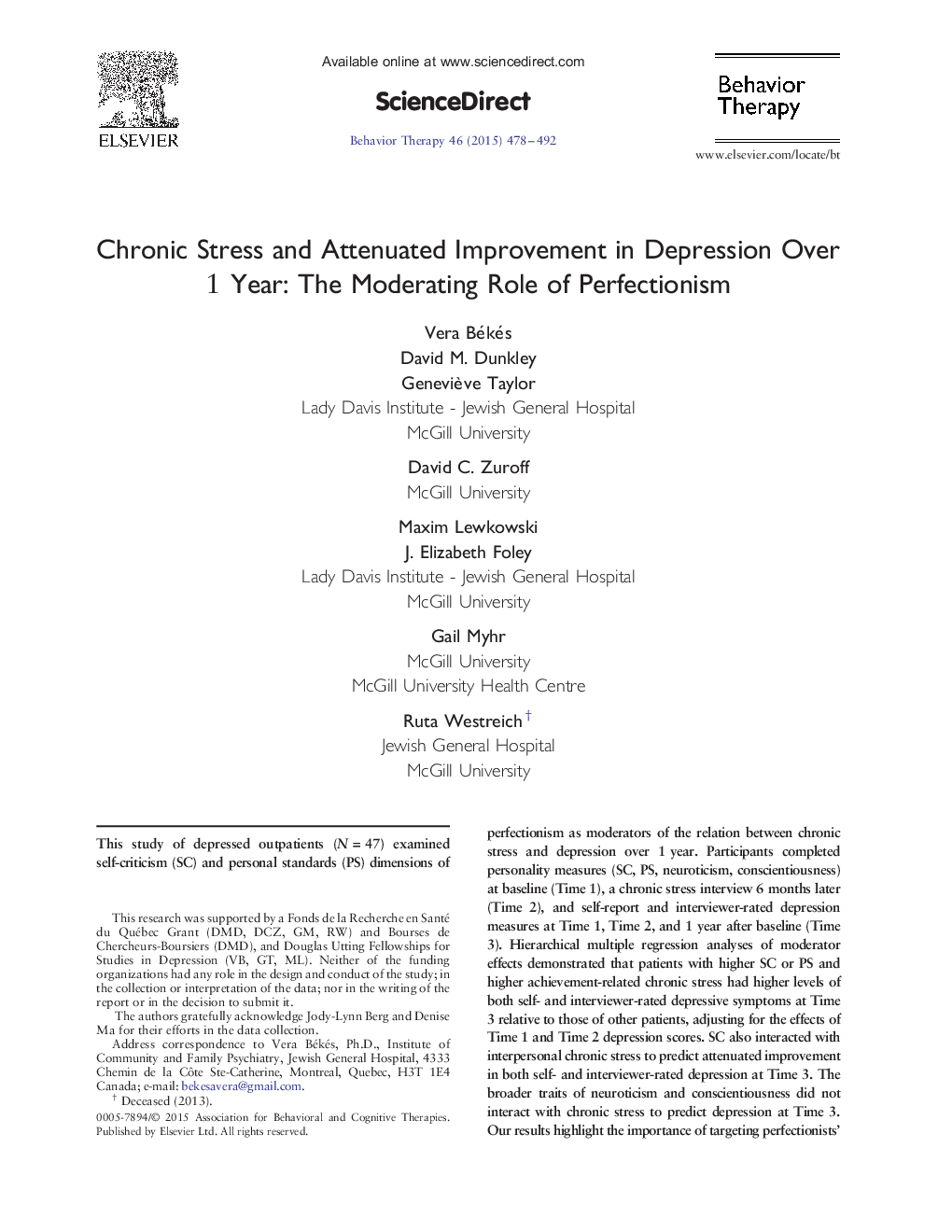| Article ID | Journal | Published Year | Pages | File Type |
|---|---|---|---|---|
| 901175 | Behavior Therapy | 2015 | 15 Pages |
•A longitudinal study of perfectionism, chronic stress, and depression over one year.•Achievement-related chronic stress interacted with perfectionism to predict depression.•Interpersonal chronic stress interacted with self-criticism to predict depression.•Perfectionism dimensions distinguished from neuroticism and conscientiousness.•Theoretical and clinical implications are discussed.
This study of depressed outpatients (N = 47) examined self-criticism (SC) and personal standards (PS) dimensions of perfectionism as moderators of the relation between chronic stress and depression over 1 year. Participants completed personality measures (SC, PS, neuroticism, conscientiousness) at baseline (Time 1), a chronic stress interview 6 months later (Time 2), and self-report and interviewer-rated depression measures at Time 1, Time 2, and 1 year after baseline (Time 3). Hierarchical multiple regression analyses of moderator effects demonstrated that patients with higher SC or PS and higher achievement-related chronic stress had higher levels of both self- and interviewer-rated depressive symptoms at Time 3 relative to those of other patients, adjusting for the effects of Time 1 and Time 2 depression scores. SC also interacted with interpersonal chronic stress to predict attenuated improvement in both self- and interviewer-rated depression at Time 3. The broader traits of neuroticism and conscientiousness did not interact with chronic stress to predict depression at Time 3. Our results highlight the importance of targeting perfectionists’ dysfunctional characteristics (e.g., contingent self-worth, coping, interpersonal functioning) that perpetuate a chronic sense of hopelessness in the context of chronic stress in order to produce a better treatment response for these individuals.
